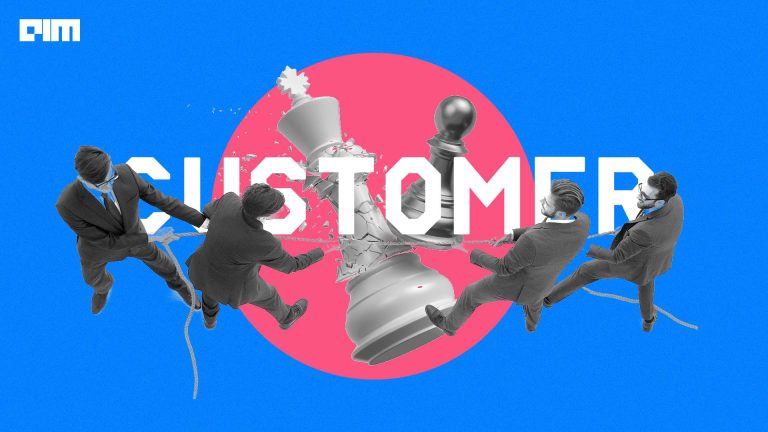It is the next shiny bleeding edge technology the Silicon Valley is excited about. Well, we are talking about quantum computing. So, we all know what are Google’s grand plans for quantum computing with the Mountain View search giant publicly demonstrating its advances and supremacy in quantum computing. Researchers indicate that Google has already done the preparatory work required to build large-scale quantum computers. Once these advances are put in motion, the web giant will certainly commercialise the technology in the next five years.
But, this is not a one-horse race and there’s a slew of bold-faced names in the marquee. The other top two leading players in the quantum hardware race are IBM and now Microsoft. Intel has invested $50 million in quantum computing research. Earlier this year in July, Microsoft signed a multi-million-dollar deal with University of Sydney in furthering quantum computing research, one of the eight Station Q’s – Redmond giant’s quantum computing laboratory. Over the years, Microsoft has doubled down on its quantum computing effort and has eight centres that form Station Q.
Microsoft has taken a quantum leap with a new programming language
As part of its ramped up efforts, Satya Nadella led Microsoft recently announced its new breakthrough in quantum computing – quantum computing tools that would enable a wide range of developers to take advantage of quantum computing’s power at the Ignite conference in Orlando. The theoretical research group headed by famed American mathematician Michael Freedman and Director of Microsoft Quantum has developed the first topological qubit, a robust type of quantum bit that the company believes will serve as the basis for a scalable, general purpose quantum computer system – and mark a profound breakthrough in the field of quantum physics, notes the blog. The company unveiled its advances with the quantum computing toolkit at the Ignite conference. The Redmond giant demonstrated developing both the topological qubit and the ecosystem of hardware and software that will allow developers to leverage quantum computing.
Here’s a look at Microsoft’s newly minted quantum programming language with borrowed elements from Python and the popular C. The language is deeply integrated with Visual Studio toolkit and designed to work on both a quantum simulator and a quantum computer, notes the Microsoft blog.
What’s Microsoft play in the next wave of computing?
If you are wondering why we should care about Microsoft’s quantum computing efforts given that the technology will take a long time to commercialize, here’s where quantum computers will score over classical computers. Microsoft researchers believe that “topological quantum computer will help AI researchers speed up the labour-intensive process of training algorithms using machine learning.”
Essentially, the quantum computing advances will translate into speeding up research in artificial intelligence and machine learning. Since certain computations such as optimization, sampling, search or quantum simulation this promises dramatic speedups. According to Google research, Quantum computing boils down to the design of hardware and software that replaces Boolean logic by quantum law at the algorithmic level. Since many tasks in AI and machine learning rely on solving hard optimization problems or performing efficient sampling, quantum computing can deliver speedups in processing and computations that take a lifetime will be crunched to hours and minutes.
Here’s where the company scores over its rivals Google and IBM. The company just doesn’t wish to make one quantum computer to showcase it in its lab, it wants to develop a quantum computing system, right from hardware to the complete software stack that can program quantum computer.
What underpins the race to build quantum hardware?
Microsoft CEO Satya Nadella is putting all its might behind this nascent technology quantum computing. The reason – after cloud storage, quantum hardware holds the promise of lifting the balance sheet and bringing in millions of dollars. By rolling out the first unnamed quantum language, Microsoft has made a play to dominate the quantum ecosystem by influencing the developer community to code for quantum computers even before they arrive. Nadella outlined his vision at the Orlando conference by revealing his business model of augmenting cloud storage with quantum computers — quantum computers could be rented with cloud servers to research-intensive companies that are looking out for powerful simulations and machine-learning software for AI advances.
Industry experts believe that for Microsoft to commercialize and mint dollars from quantum hardware, the company will have to make developer community familiar with quantum algorithms and get them to develop apps which could run on the hardware. To that end, Microsoft will also roll out tools to enable developers to simulate collections of qubits on their computers, or in the cloud, so that they can test the quantum code. Will there be any takers for the new language? According to Freedman, the same set of developer community that adopted machine learning and AI would latch on to this new class of computing language. He further adds that this new programming language is designed for developers to create apps to debug on quantum simulators today and can run on a quantum computer in the future.
Outlook
While this sounds like a long shot, Microsoft has already stolen a march over Google and other rivals by being the first-to-market its quantum programming language. This new class of computing has many applications – cyber security, personalized medicine, computational chemistry, machine learning systems and financial portfolio optimization among other areas. With massive investment flowing in this space, let’s see who will come out a winner in this engineering race to build the next to build full-scale quantum computer systems.





















































































